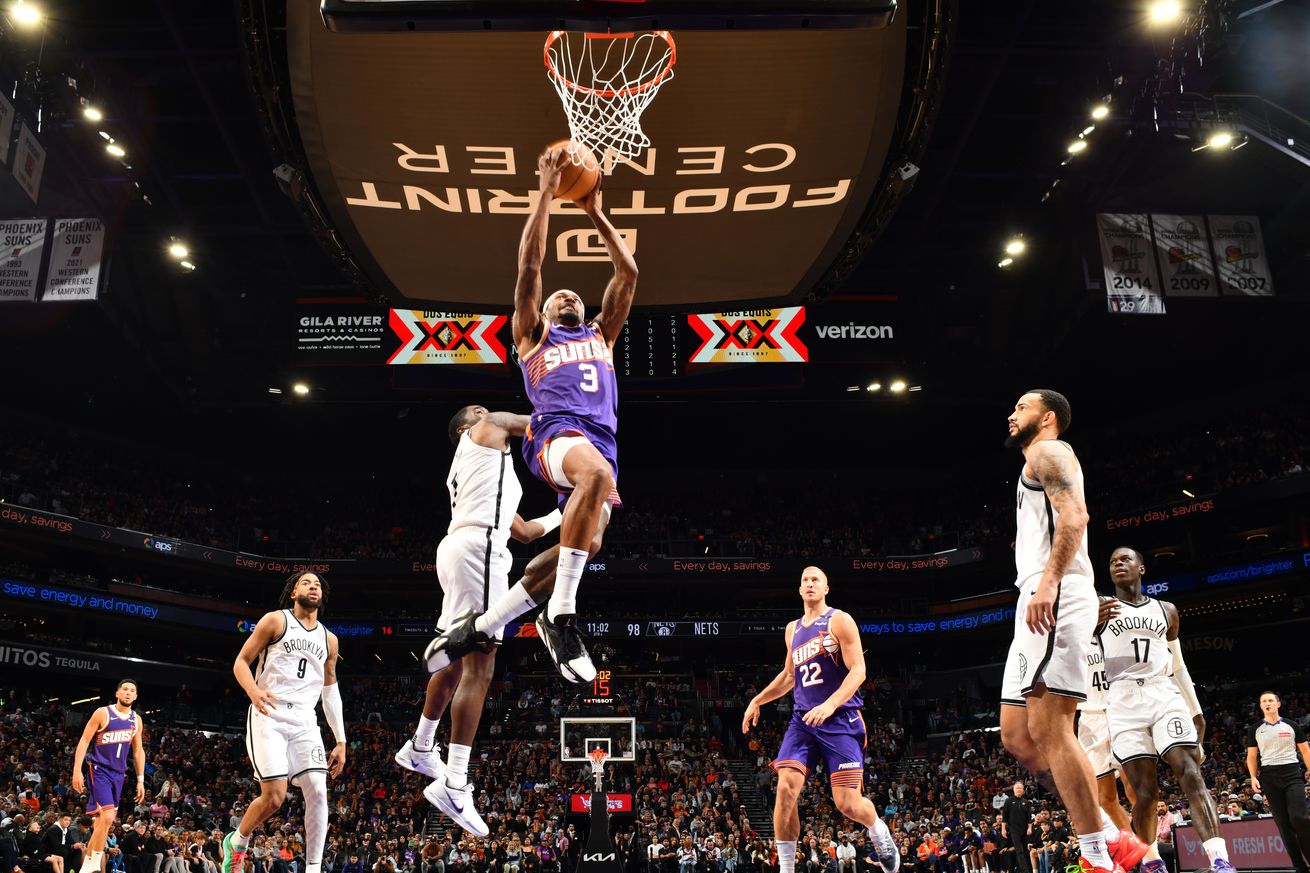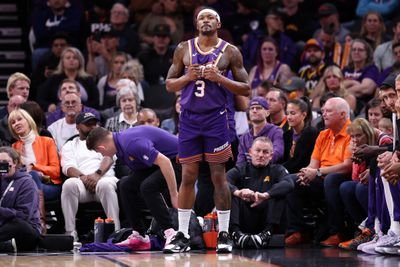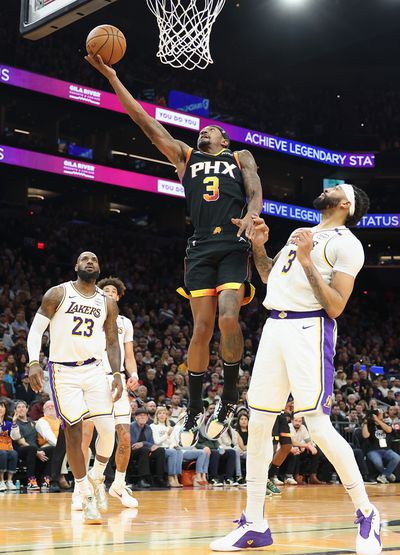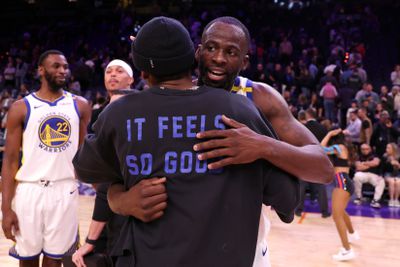
As Bradley Beal navigates the opening months of his second season with the Suns, the idea of a sixth-man role has sparked debate. Could coming off the bench preserve his health and elevate the bench unit, or would it diminish his value alongside Booker and Durant?
Peanut butter—crunchy or smooth? Holden or Ford? Pizza or burgers? We could go back and forth for days. Yet, few topics spark more wild debate than the question: should Bradley Beal come off the bench? Yet here we are.
After all, Beal is a three-time All-Star and one of the league’s most dynamic scoring guards, a player who once averaged 30-plus points in back-to-back seasons. Yet, given his ongoing health concerns, a compelling question arises: Could Beal thrive as the Phoenix Suns’ sixth man, offering flexibility and firepower while managing his workload?
The idea isn’t without precedent. NBA history is peppered with star players reinventing themselves in roles designed to maximize their impact. Consider the Carmelo Anthony’s and Manu Ginobili’s of the NBA world.
Beal’s undeniable talent makes him the Suns’ third-best player when healthy, but his availability has been the defining caveat. Could limiting his minutes and staggered deployment creates a win-win scenario for both Beal and the Suns’ long-term aspirations?
Let’s look at both sides of the coin—and we’d love for readers to weigh in as well!

Photo by Chris Coduto/Getty Images
The Case for Beal Off the Bench
Health and Longevity:
Beal’s career in a Suns uniform feels like it’s been marred by injuries. No sooner does he get healthy again, he gets banged up and is out again. There was a moment in the local broadcast on Saturday — when the Warriors came to town — cut to an injured Beal, courtside, looking dejected. No doubt missing being in action.
Could coming off the bench mean fewer minutes and less physical strain, preserving him for crucial stretches of the season and playoffs? In theory, it’s a role tailored for longevity. In actuality? You can come into a game later (or for less time) and still get injured. With Beal’s clear effort on both sides of the ball, I’m putting it on the ‘for’ side of the coin.
Bench Unit Superiority:
As a Sixth Man, Beal could dominate opposing second units. Surrounded by high-energy, defense-first players, his offensive versatility would shine. A lineup featuring Beal and shooters like Royce O’Neale, Grayson Allen, and Ryan Dunn could create problems, disrupting opponents’ rotations. Load up on Beal, and he’ll find open shooters.
Beal off the bench case? Bradley Beal’s two-man lineup data reveals that his most productive pairings are exclusively with bench players:
Beal/Allen: +13
Beal/Plumlee: +10
Beal/Morris: +8
Beal/Oso: +7For comparison:
Beal/Booker: -36
Beal/KD: -5 pic.twitter.com/5km7ESKBLO— John Voita (@DarthVoita) December 2, 2024
With Booker and Durant, the Suns have a two-headed dragon supported by a strong cast; why not make Beal the head of the snake for the bench crew?
Strategic Flexibility:
Staggering Beal’s minutes allows the Suns to maintain an elite scorer on the floor at all times. With Devin Booker and Kevin Durant commanding defenses as starters, Beal would have more freedom to operate as the focal point against secondary defenders. Admittedly, there would be a few more wrinkles to sort out; who starts, for example? However, Beal off the bench allows Coach Bud to bring balance to the (offensive) force.

Photo by Christian Petersen/Getty Images
The Case Against Benching Beal
Star Power Dilemma:
Beal’s $50 million-per-year contract practically demands a starting role. The optics of relegating a player of his caliber (and payroll) to the bench could invite criticism, particularly if the team struggles to find rhythm early.
Chemistry Concerns:
The Suns’ Big Three — Durant, Booker, and Beal — were brought together to overwhelm defenses with elite scoring. Shifting Beal’s role might compromise their chemistry, especially in close games where their collective gravity is a key weapon. Could a Beal-to-the-bench shift undermine the utility of all three guys being ready to take over?
Beal’s Adaptability:
While his scoring prowess is undeniable, Beal’s ability to thrive in a non-starter role is simply untested. He’s never been asked or tasked with such a role. Can he find the same rhythm and consistency coming off the bench as he does with starter-level minutes? How long would it take?
Does It Even Matter?
Ultimately, Beal’s role — starter or Sixth Man — might hinge less on labels and more on pragmatism. With Coach Bud at the helm, the Suns could consider experimenting with rotations that balance their star trio’s health and effectiveness. Or they may stay the course and take the “if he’s available, he plays” approach.
The midseason tournament, upcoming playoff pushes, and a top-heavy Western Conference all demand adaptability. Ultimately, we all want to see a fully healthy Suns squad ready to redeem themselves with a deep playoff run. How we get there and to what degree Beal’s involvement looks like is something we talking heads can enjoy debating and discussing.
Hey! We want your comments! Is there a pro or con you think should garner more attention? Tell us below. And have a say in this matter with our poll.

Photo by Chris Coduto/Getty Images
